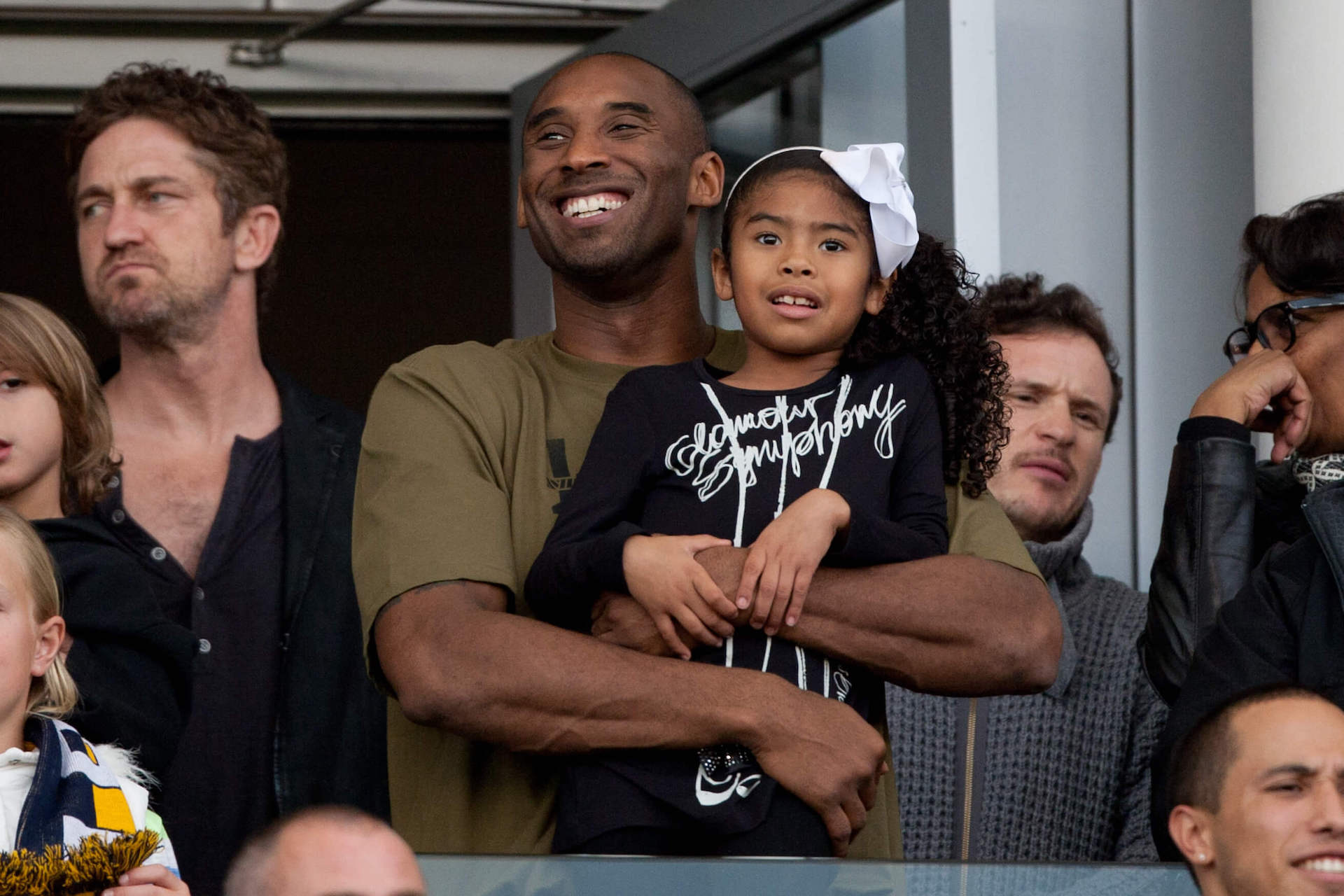Michael Jordan and the Chicago Bulls ended the 1995-96 regular season as the winningest team in NBA history with a record of 72-10. They further cemented their greatness by winning the NBA championship in a six-game series against the Seattle Supersonics on June 16, 1996. On the 25th of that same June, Jay-Z released his first solo album, Reasonable Doubt, launching the career of a rapper who is now regarded as a music mogul and Hip-Hop legend. The day after the release of that debut album, Kobe Bryant, a young basketball phenom from Lower High School was selected in the first round of the NBA draft, ultimately ending up on the Los Angeles Lakers roster, where he would play out his entire legendary 20-year career.
What do these stories have in common? These stories each began as merely a vision in the minds of people who dedicated their time, energy, and effort to achieving their own versions of success. Kobe, Jay-Z, and that ‘95-’96 Bulls team reached heights that most people can only dream about. They broke into the public consciousness, attaining incredible wealth, accolades, status, and the adoration of the world.
What they also have in common is that they became the model, the very definition, of success to an 11-year-old boy growing up in mid-1990s Southern California without any such examples of personal success that he could point to in his immediate surroundings. That 11-year-old kid was me, and undoubtedly, there was an entire generation of boys just like me who were inspired by the sparkling achievements of these superhero-like figures.
It would take all day to explain how particularly influential the late Kobe Bryant was, especially to young men like myself from the Los Angeles area that came of age during his hall of fame career. Seeing him become one of the very best at his craft, and reading and hearing stories about his singular focus on basketball glory, taught me that achieving personal success would require great sacrifice. I concluded that if I ever wanted to be successful, then I too would have to pour myself into achieving my goals as he did, even if it meant giving up the need for balance or moderation. I believed that anything and anyone that did not aid in achieving the objective was expendable. For me, this is what the path to success looked like.
However, I’ve come to understand that there is far more to men like Kobe Bryant, and how they define and measure success, than what I first realized. Although opinions vary, I think it is safe to say that success in America is normally defined and measured by personal gain or achievement, regardless of race, ethnicity, culture or creed. Thus, individuals or groups like the ‘95-’96 Bulls, Jay-Z, and of course Kobe, are all hailed as successful solely based on what they’ve achieved. The same is true for us. For the average guy, his success in life is measured by things like his ability to get an education, to get a job or start a career, or to provide for himself and his family.
While, at face value, there is nothing wrong with these measures, they present a very limited view of what success as a man looks like. In truth, success can be defined and measured by much more than personal achievements. Consider, for example, the times in which your life was impacted or changed by people who devoted themselves not only to personal achievement, but to the betterment of the world and the benefit of the people in it. If you struggle to recall any such personal experiences, look no further than your parents or the people who raised you, your favorite coach or teacher, or some other figure that saw you and cared for you in a meaningful way when you may have wondered if anyone could see you at all. The fact that what they did for you and I sticks with us, often for the rest of our lives, is evidence that there is something to be said for witnessing such a depth of care and commitment that pushes beyond the boundaries of mere self-centered ambitions. In such people, we find a new way to measure success that is not only by personal achievement, but by the ability to leverage one’s influence for the benefit of others.
Certainly, I don’t intend to minimize the importance of hard work and having personal goals that provide direction and a level of stability in one’s life. It is true that hard work and dedication are important components of what it takes to be successful. However, true success requires balance and moderation. Contrary to what I once believed, hard work and dedication does not have to be at the expense of meaningful relationships and serving the needs of others. Furthermore, it is important to place some emphasis on personal achievement, educational goals, financial literacy, and the acquisition of wealth to the end that these things provide a man with the wherewithal to be a blessing to more people than just himself. The main point is that even these things should serve as means to have a greater impact on our world than would be possible without them. When personal achievement becomes a means to benefit others, and not an end within itself, a man is truly successful.
This, ultimately, is what we learn from the life of Kobe Bryant. He was not short on personal achievement. His single-minded quest for dominance during his professional basketball career became a model for excellence, and he became legendary on the court because of his “Mamba Mentality.” He worked countless hours. He didn’t make excuses. He embraced the challenge of performing in pressure situations. He broke records. He served as a global ambassador, helping to grow the NBA brand. He amassed great wealth and accomplished great things along the way. To the average fan of the sport, these things are common knowledge. Yet, in the wake of Kobe’s passing, as people who knew him well spoke about him, they helped us to appreciate chapters of his life and legacy that many of us were unaware of.
In the late stages of Kobe’s career and into his retirement years, we got to see him leverage his popularity, resources, and experience to uplift the people around him. He mentored and trained the next generation of NBA and WNBA players. He helped nurture his daughter Gianna’s love for the game of basketball, introducing her to pro basketball players, teaching her whatever he could about the game, and even coaching her AAU team. He sought to bring attention to the WNBA, its players, and other female athletes. He publicly praised and encouraged fellow athletes and celebrated their accomplishments. He gave his time and money to causes that were important to him. He took on public speaking engagements to encourage in others the tenacity and passion that he was famous for. He put his deep love for his wife and daughters on display for everyone to see.
At the end of Kobe’s life, we heard more about his legacy as a husband, father, friend, teammate, and member of the community than about his impact on the basketball court. He was enjoying retirement because it allowed him to pour into his family, to be an engaged member of his community, and to explore new ways to channel his passion and inspire people. He gave his time, energy, and passion to the people he loved and to his community. Kobe evolved. He became a man who embodied selfless leadership and prioritized the needs of others. His focus shifted from pursuing his own greatness to helping others discover their greatness. I will always appreciate what Kobe was able to achieve on the court, but it’s his desire to lead and inspire others that I have come to admire the most about him.
Now, imagine if this was how we as men redefined success. Imagine if, instead of the achievement of personal goals only, these same selfless qualities seen in the life and legacy of the late Kobe Bryant became how we define and measure our success as men. Imagine if there was an entire generation of men all bent on displaying these same noble qualities of selflessness, humility, and service. The magnitude of such a shift would completely rock the world as we know it to its very foundation.
My encouragement to you is to reflect on your life and consider how you might describe, or even quantify, the level of success you have achieved thus far. Moreover, I encourage you to evaluate the standards by which you measure your own personal success. Most importantly, be a man capable of being honest about your motives. Your motives, or the true desires of your heart that drive your actions, communicate something very important about who and what matters most to you. If personal satisfaction, pleasure, comfort, and the feeling of accomplishment alone drive your actions and direction, it suggests that you are maintaining a limited and narrow view of success. It may mean that you are content with operating at a level of social, emotional, and spiritual maturity that fails to reflect the best of humanity and of yourself. Let this moment serve as an opportunity to challenge yourself beyond your quest for personal success alone and to seek how you can make the world better for those around you.
“Let not steadfast love and faithfulness forsake you; bind them around your neck; write them on the tablet of your heart. So you will find favor and good success in the sight of God and man.” (Proverbs 3:3-4)
Concluding thoughts/questions:
- How have you defined success in your life, and where did your philosophy on success come from?
- When you reflect on this philosophy, who are the people that benefit from your vision of personal success?
- As you pursue your vision of success, who is being helped the most?
- Is there some cause greater than your own ambition which is linked to your vision of success?
- Is there someone in your life, sphere of influence, or extended network that you can look to as a model of success as you have defined it?
- Is there someone in your life, sphere of influence, or extended network that you can look to as a model of success as we have tried to redefine it?








I was emotional reading this. I was in a coma during Kobe’s last game so I didn’t see it. However the impact he had on my life was so big for me. You know that better than most. Still sad he’s gone. Thank you for writing this.